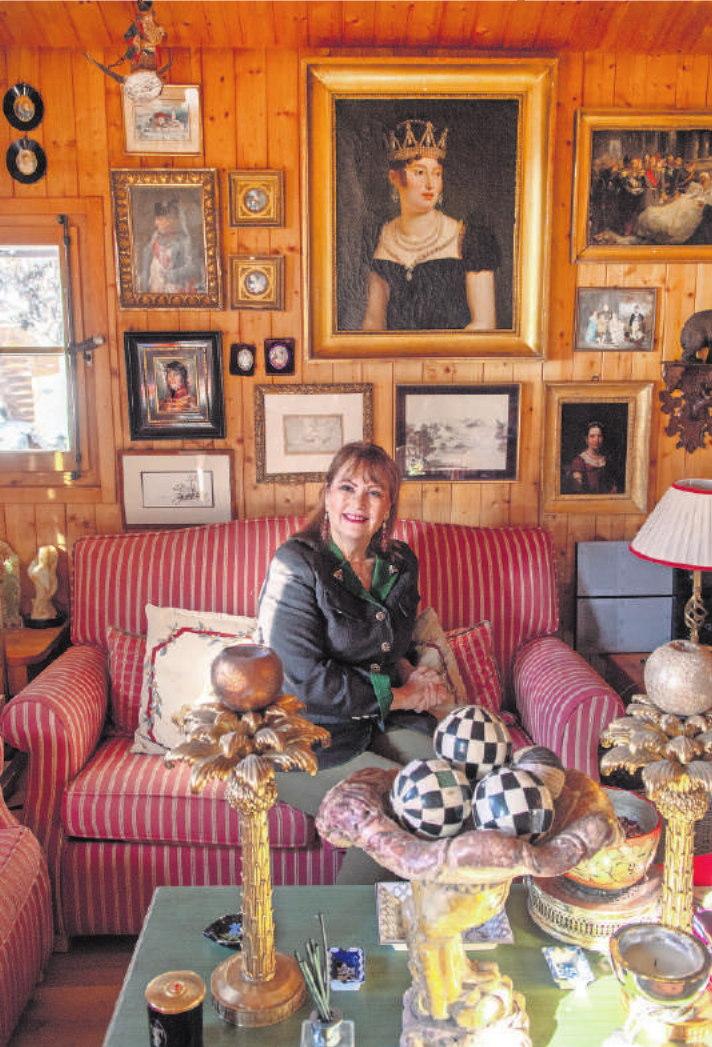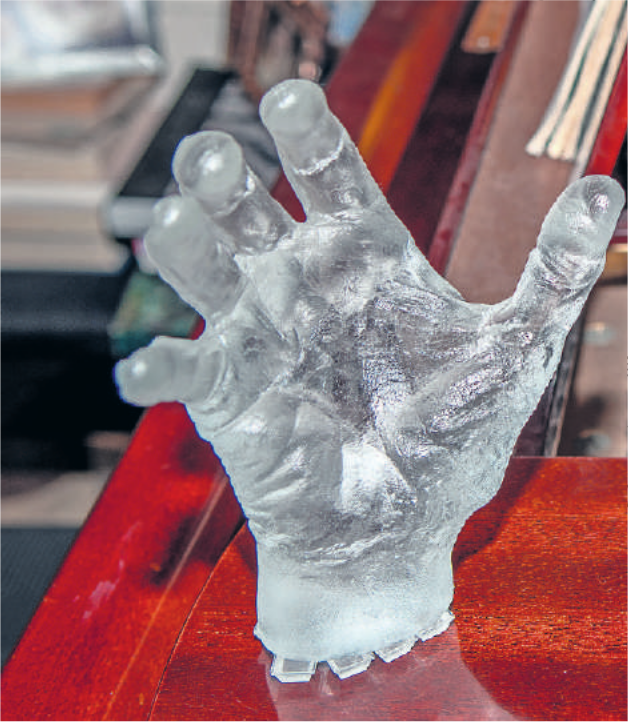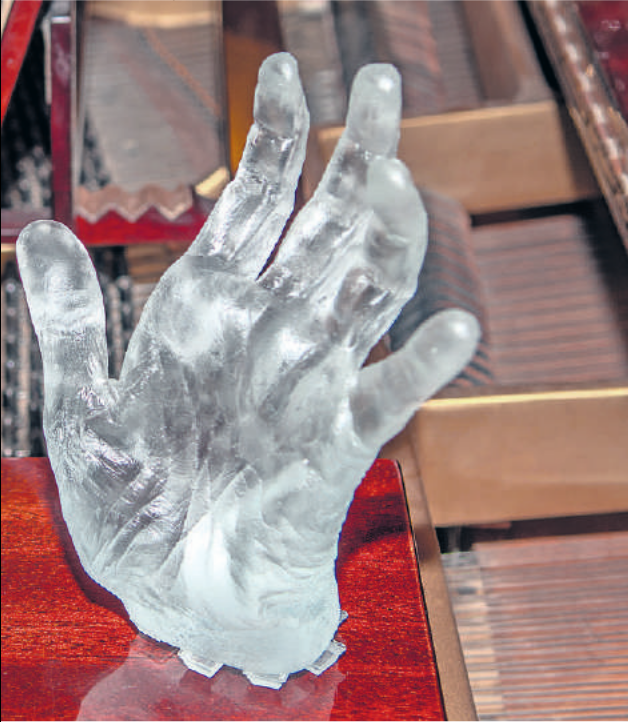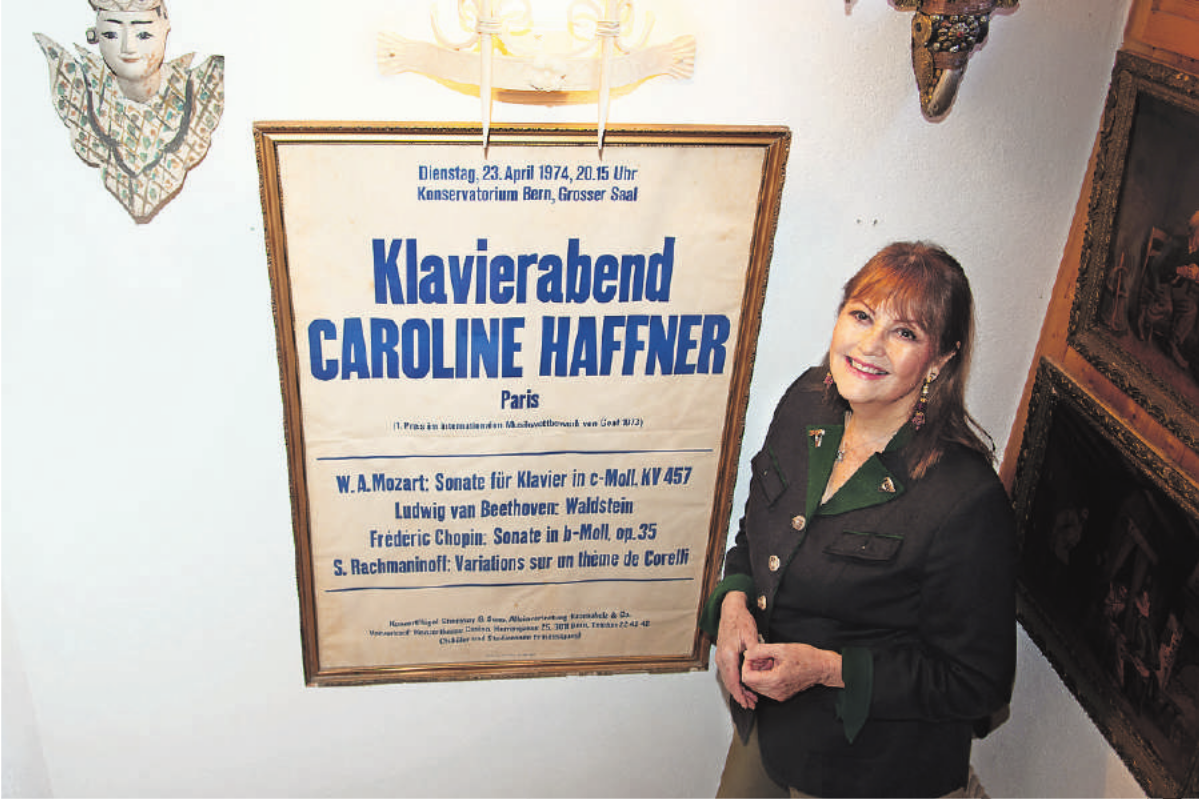Soul essential
23.12.2020 Arts & CulturePrincess Caroline Murat is artistic director of the Gstaad New Year Music Festival, an event she founded in 2006. Caroline is also a professional pianist herself, playing under her mother’s maiden name Haffner, and has built up a large and illustrious body of work. Caroline enthusiastically talked music, festivals, art and culture with GstaadLife.
I understand you have a long connection with the Saanenland?
Yes, Gstaad has that special something which inspires me. In 2000 I founded Les Sommets Musicaux, then a few years later I launched the Gstaad New Year Music Festival, which is now in its 15th year.
You have had an impressive and varied career in music. What interests you about festivals?
I love music over everything else in life – with the exception of my family, of course. Music is the only thing that has ever really interested me. I started piano at four and was a professional musician by the age of 14. I play under my mother’s name because she loved music and always wanted me to be a musician.
In addition to performing, for twenty years I had the wonderful opportunity to work with Martin Engstroem, artistic director for the Verbier music festival. It was such a fantastic experience that I decided to take a new direction in my life: to organise festival programmes, help young musicians and devise concerts because I love to hear them so much. It’s not about the fame or the money: I’m doing things because I want to do them.
What was your vision for the Gstaad New Year Music Festival?
When I started the festival, one of the first questions I asked was what could I offer that was different. We select a varied programme of events and are especially careful not to invite the same artists as the other events in Gstaad.
This festival is all about doing the music I love in the spirit I love. Over the years we’ve hosted concerts, sessions on composing music for soundtracks, films, masterclasses, recitals, choirs, jazz. One year we held a session on Spanish dance and we’ve even had the European ice dance champions skate at one of our concerts. I love this kind of mix. More festivals mean more music which means more public. It’s a beautiful thing.
How has being a musician yourself influenced the founding of the festival?
I’m not a concert agent. As I’m not looking for any favours and have no personal interest in being invited to other festivals in return, this means I can invite whom I like.
Of course, there is the matter of money.
It’s easy to find a lot of money for someone famous and more difficult if the musician is less well known.
While we do have stars perform, it’s not the basis of the festival. A big focus is to invite young, unknown artists. My relationship with the younger generation is really strong thanks to the Verbier Festival Academy, which I created while working with Martin. I have seen a whole range of extraordinary young artists come through the ranks via this programme and I’ve helped some of them start their careers. Through this collaboration they’re happy to perform at my festival and they are of course happy to see each other.
As a musician myself I’m not convinced it’s always the most famous people who are the best. There are many artists from my generation whom I admire greatly, but who are maybe less well known. It is my pleasure to invite them to my festival and I work very hard to make this happen.
It makes me especially happy to see musicians who were young and unknown when we invited them to our festival now become famous.
There must be a lot of work involved in such a festival?
It’s hard work, but extremely rewarding. We put a lot of thought into the programme to make sure everyone’s happy. It’s all about connecting the right pieces to the right locations. For example one year we held a concert in the small St Niklaus-Kapelle as an homage to Beethoven. It was like sitting with Beethoven in a café in Vienna. It was wonderful.
The festival is in three weeks’ time so I don’t have much personal life at the moment. I’m now speaking with the musicians or their agents on a daily basis. In fact this year I’ve spent a lot of time reassuring them that the festival would still go ahead.
When the musicians arrive, I’ll be with them nearly all the time because I want them to be happy. I know that if the musicians are content, they will play well. It makes all the difference in the interpretation and that’s why we have such high-quality concerts.
Where do you go to re-charge your batteries when you’re working so hard?
Lauenen is my paradise. In fact Lauenensee is one of my favourite places in the world. I’m not a huge walker but it’s such a beautiful spot: the small lake, the mountains, the waterfall. It’s really a place for a poet. For me, music is about the soul, about love, beauty, generosity and about connecting with people. Nature is like that, too – generous, giving, beautiful and musical. I once dreamed of organising a concert around the lake, bringing together my love of music and love of this place. I’ve given up on that idea for now as it was proving too complicated to arrange, but you never know…
2020 has clearly been a challenging year. What has been the impact of Covid-19 on musicians?
Music is paying a heavy price. I was shocked by the initial coronavirus measures taken by my country, France. First the libraries and bookshops were shut, then the concert halls. These were all called ‘non-essential’, but culture and knowledge are exactly what is essential to the human soul. We are more than just consumers. There is more to life than working, eating, sleeping and shopping. I was so furious.
But I’m especially sorry for the young generation of musicians. 2020 has been a disaster for them. I know many who are thinking of quitting and changing profession. This makes me very sad because it’s a dream to be a musician, a dream you have from childhood. You work hard all those years then something like this happens and you can no longer make that dream a reality.
And how about the impact on the broader cultural scene?
I expect a lot of music festivals will go bankrupt and not recover. It’s extremely sad because each festival represents a lot of love from the organisers and musicians. As a pianist I always enjoyed the smaller festivals – they were run on tight budgets, but by people who were absolutely crazy about music.
Happily for us, our festival is not a business. All the money we raise goes to the music. We don’t have an office. We don’t pay permanent salaries. This will help us survive these turbulent financial times.
Why did you decide to go ahead with the festival this year?
I insisted on holding the festival for all the musicians who have suffered so much and for the public who have been deprived of music for so many months.
A lot of people said I should cancel this year, but I was adamant we would proceed even if we only performed for five people. Because those five people have a right to hear music.
We’re in the world of art and that’s what we do: we share
How have you adapted the format of the festival for Covid-19?
I had to reduce the number of musicians at each concert to seven because I was concerned they would be included in the permitted occupancy for each venue. This means no orchestras, sadly.
I also had to cancel two concerts. This was very unfortunate, but we aim to hold them at next year’s festival instead.
I must add it has also been much more difficult to fund the festival this year, especially as there was initially some uncertainty as to whether we would proceed or not.
The Club des Amis is the major financial contributor to the festival. I am so thankful to the Club des Amis and its fantastic chairman Jean-Sébastien Robine for their valued support. We can proceed largely thanks to their efforts.
What is your future vision for the Gstaad New Year Music Festival?
Oh I have so many ideas for next year! You never know what’s going to happen, but if things return to normal, we’ll go crazy. I already know the artists I’d like to invite and I think it would be fun to have fireworks too. Yes, we’ll go crazy!
ANNA CHARLES
This interview was conducted before the latest measures of the Federal Council, which prohibit sine die the organisation of cultural events. The Gstaad New Year Music Festival 20/21 will therefore be moved to the second half of March 2021. All information will be communicated on the website gstaadnewyearmusicfestival. ch. Tickets already purchased will be refunded or remain valid for the spring 2021 edition.







